(Waterloo, August 7, 2024) – Canadian X-ray manufacturer KA Imaging and the Canadian charity Kenyan Kids Foundation Canada (KKFC) are collaborating to bring advanced medical imaging technology to Kenya. The initiative aims to enhance healthcare accessibility in remote regions of Kenya through the deployment of KA Imaging’s innovative Reveal 35C technology.
The project has two planned phases. The first Phase involves installing the Reveal 35C detector in a portable system at a rural hospital. Phase II includes developing a mobile X-ray vehicle to extend imaging services to remote areas in the Cherangany Hills region in northern Kenya.
“This project is a natural fit with KKFC’s mission of ‘investing in Kenyan cooperative development for education, health and economic vitality’. Introducing advanced Canadian medical technology to a rural Kenyan hospital will make a significant difference in the lives of thousands of people living in that region,” said Blair McKay, KKFC Chair.
Michelle Kiprop, a Nurse Practitioner who has served in Kenya for 15 years, is excited about the initiative. “Being able to look at a patient and think – is this a mass? Tuberculosis? Is this benign? Often, the patient would have to travel extensively, raise funds, probably sell some animals from their home so they can take care of these expenses to have this imaging done. Having access to this higher technology is going to make a big difference for our patients and staff,” said Kiprop.
Reveal™ 35C is a single exposure, portable, digital dual-energy subtraction (DES) X-ray detector. Powered by its exclusive SpectralDR™ technology, it uses the same radiation dose as a chest X-ray to create three different images without motion artifacts. In medical applications, this means a regular Digital Radiograph, plus soft tissue and bone images. The product provides enhanced visualization of line and tube ends, retained surgical objects, pneumothorax, bedside pneumonia, and more. KA Imaging aims to improve image quality and achieve tissue differentiation in mobile systems while maintaining the ease and simplicity of X-ray.
The project has an estimated cost of $100k, which includes the cost of a Reveal 35C detector, the X-ray source, software – including AI software for triage – and training. Most of this cost has been covered by KA Imaging. American X-Ray accessories manufacturer, RC Imaging, offered support by donating a carbon fiber protector with anti-scatter grid (a device used to protect the detector and improve image quality). KKFC is raising funds for the remaining $25k.
“KKFC is looking forward to working with KA Imaging to provide advanced medical imaging technology to serve a population in Kenya that has such great need,” said Brian Tithecott, KKFC director.
In late June, the project was launched during an event at KA Imaging headquarters. Other in-person events are planned for the fall in the Waterloo Region.
“Working to improve global health is why KA Imaging started as a company, and we are confident that Reveal 35C technology can make a significant difference,” said Amol Karnick, CEO of KA Imaging. “This is an incredible opportunity to learn how to scale this type of project so that similar initiatives can be implemented in other underserved areas,” said Karim S. Karim, CTO of KA Imaging.
Donations
Online donations to support this initiative can be made through KKFC’s website: https://www.kenyankidsfoundation.ca/kax
About KA Imaging
A spin-off from the University of Waterloo, KA Imaging specializes in developing innovative X-ray imaging technologies and systems, providing solutions to the medical, veterinary, and non-destructive testing industrial markets.
About KKFC
KKFC is a registered Canadian charity based in St. Clements, Ontario. The foundation’s mandate is to relieve poverty in Kenya by helping people to become more self-sufficient in the areas of education, health, and well-being. Most of their efforts are focused on the Cherangany region, a remote location that faces many challenges. Many of the people that live in the area lack basic infrastructure like access to clean water, schools, and medical care.
